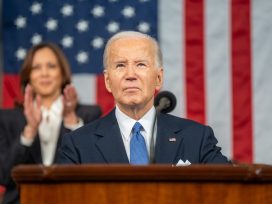
Biden’s State of the Union speech seems to have proved that he could survive another four years in the White House. But doubts remain whether he can defeat the man whose supporters clearly care little about actual policy.

Biden’s State of the Union speech seems to have proved that he could survive another four years in the White House. But doubts remain whether he can defeat the man whose supporters clearly care little about actual policy.
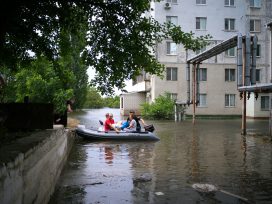
The immediate need for environmental protection and reparation in war-torn Ukraine has entered the country’s peace plan. Legislative revisions, recognizing ecocide, and thereby advancing the rule of law globally, expand what it means to develop responsible governance of the ecosystems that sustain us.
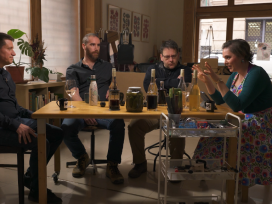
Europeans have a hard time holding their drink, this continent is topping the drinking charts globally. Is it nature, culture, or a policy issue? We discuss alcoholism on today’s Standard Time.
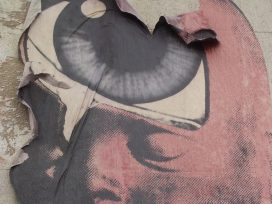
How do we learn to see? And how do we learn to be seen? Scientific theories layered over centuries, as intellectual history, have shaped and directed perceptions of vision. Contemporary studies on the evolution of sight in children gauge what an increasing dominance of screen visuals is teaching us.

On both sides of the Israel–Palestine conflict, rights of free speech are being violated. Whether the silencing of critics of Hamas in Gaza or repressions against Palestinians in Israel seen to be voicing support for the Palestinian cause, the eradication of dissent will only deepen the conflict.

Last year’s overturning of Roe v. Wade took abortion laws in the US back to the nineteenth century. But despite the enormity of the setback, the moment provides pro-choice campaigners in the US with an opportunity to widen their political aims.

The city is lively but not always liveable. Urban ambience can make one feel free, but polluted air leads to asthma and lung cancer. Car drivers or cyclists, family or industrialists: who does the city belong to? We talk greening cities on today’s episode of Standard Time.

Into its 25th year as an online cultural magazine, Eurozine can boast of a longevity unusual for an independent journalistic project of its kind. But 25 years testifies not just to longevity. Eurozine can also claim consistency.

Travelling to Jordan soon after the beginning of the Israeli onslaught on Gaza, Belgium-based artist Samah Hijawi witnesses Palestinian people’s fear, anger, guilt and confusion. Reflections on proximity and positionality at a moment of intense crisis.

On top of housing, work and schooling, Ukrainian refugees with HIV face an additional, urgent difficulty: how to access the antiretroviral medicines they need to suppress the virus. In Poland, they face a particular stigma, causing many HIV positive refugees to conceal their health status.
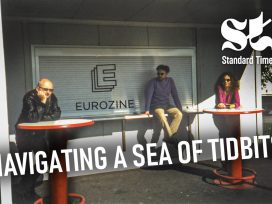
In the 90s, many thought the internet consisted of merely porn and tidbits. Were they wrong? At a time when online publishing was deeply contested, a group of editors came together and took a leap of faith. Eurozine’s story on this Standard Time episode.

Growing numbers of Russians are fleeing the stifling atmosphere that has settled across the country’s political and cultural realms. Nowhere is this more tangible than in the world of popular music – once a shared cultural space between the two nations, now just another battleground in Russia’s war against Ukraine.
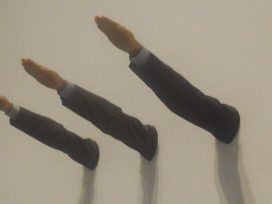
Rather than debating whether today’s far right is fascist, we need to think about fascization. Focusing on language and desire enables us to understand the process of becoming fascist, even within ourselves, and thus to resist it.

Two years have passed since Russia’s full-scale invasion of Ukraine began. Those defending against continued aggression, displaced from their homes and previous lives, deal with daily, compounded loss. Artists, reflecting on the trauma, tackle the questions that aim to make sense of life when everything is affected by death.

The EU and individual European countries are not bystanders to the ‘Israel-Palestine conflict’ but enmeshed in it both historically and today. Using charges of antisemitism to preempt criticism of Israel doesn’t just erode the concept morally and politically, but also excuses Europe of its responsibility for the Palestinians’ oppression.
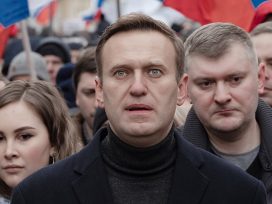
Alexei Navalny dared to challenge Vladimir Putin’s dictatorial regime. His decision to return to Moscow, where he faced certain arrest, was an expression of the moral perfectionism pursued by Russia’s literary intelligentsia.